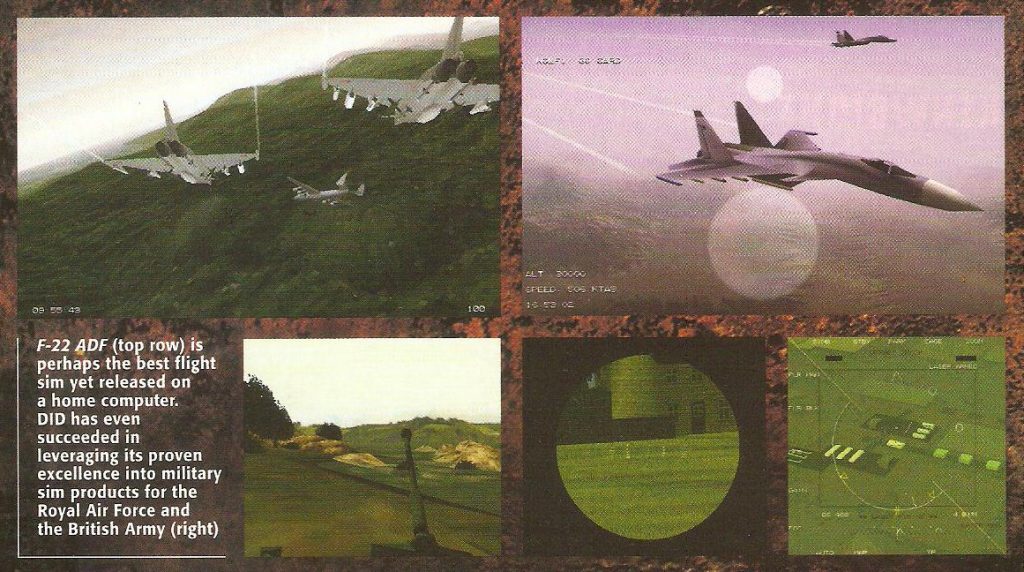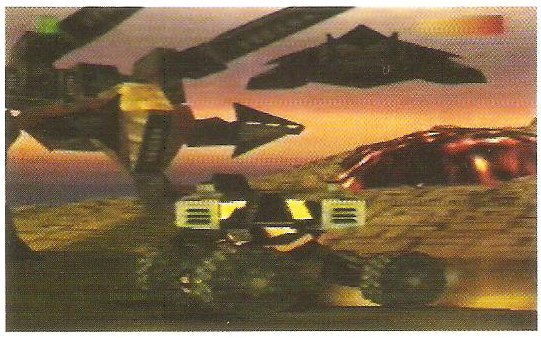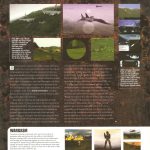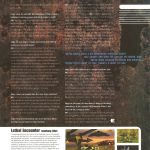An article published in the August 1998 issue of the beloved Edge Magazine is all the information that we currently possess from Lethal Encounter, developed by Digital Image Design, a British software house that had earned its place in the market with its cutting-edge PC flight simulators and training programs for the military. What could have taken Digital Image Design, the studio behind titles such as F29 Retaliator, Epic or F22 Air Dominance Fighter out of its comfort zone in the personal computer ecosystem and aim for the Nintendo 64, a Japanese console that by then had clearly lost the lead against its most direct generational rival? According to studio co-founder Martin Kenwright, interviewed in Edge, although Digital Image Design managed to have their ambitious 3 Dream engine running on the first PlayStation, the ongoing development process of the PC title EF2000 (a critically-acclaimed combat flight simulator that served as sequel to their previous game TFX) and perhaps the already crowded market that Sony’s machine amassed, made them give up on that train and instead engage with Nintendo’s 64-bit system, whose kits were already in their possession.
Back in 1989 and after having worked for two years in the British software company Rowan Games, Kenwright founded Digital Image Design together with Philip Allsopp and they quickly specialized themselves in the flight simulator genre with the launch of F29 Retaliator, while also exploring other fields, such as science-fiction with Epic or arcade with the Robocop 3 version for Amiga, Atari ST and PC. These would however constitute exceptions, as the majority of the company’s titles would remain true to their simulation roots. Even if the company, which would continue expanding until reaching the 80 in-house employees, was making a hefty profit offering their products to notorious customers such as the Royal Airforce or British Airways, they quickly determined that the videogame simulators payed better than their real life counterparts, so around 1997 they started widening their reach and quickly turned to the blooming console market.
Surprising as it might have seemed back in the day, Nintendo 64 was the platform of choice of Digital Image Design’s next outing, Lethal Encounter; almost antipodal to the company’s previous work and instead presenting players with a fairly straightforward, arcade-style third person action game. We must however not forget that given the company’s background with more strategic and complex titles, it is indeed very possible that the developers had envisioned the addition of more strategic elements to the gameplay. At least we do know that Lethal Encounter was definitely not going for realism in regards to its plot, which involved an alien invasion poisoning the Earth ‘via giant terraformers laid beneath ancient historical sites such as the Incan city of Machu Picchu, Angkor Wat and the Nasca Plains’, as described by Edge in a short preview. According to the few details available, it is unlikely that the title had any resemblance to others available on the system. Nintendo 64 did amass a quite generous library of 3D action games but few of them had the player in control of a tank and consequently the most obvious comparisons could be made to BattleTanx: Global Assault or perhaps more accurately, and due to the arcade and science-fiction setting, to the Landmaster levels of Starfox 64 (known as Lylat Wars in Europe), although it seems quite unlikely that Lethal Encounter would have chosen an on-rails gameplay like Nintendo’s title instead of a free-roaming one.
At the end of 1998 however, circumstances changed drastically and Ocean Software, which had been until then the sole publisher of Digital Image Design’s titles, became Infogrames UK, completing an acquisition process that the French holding company had already started back in 1996. This situation led Infogrames to also start a takeover process upon Digital Image Design, eventually causing the departure of six key members, including co-founder Martin Kenwright. It is therefore not preposterous to assume that the studio’s delicate position, with some of their most prominent members gone led to the eventual abandon and cancellation of some of their titles under development, situation which most probably affected Lethal Encounter but did not prevent Digital Image Design from still releasing Wargasm, another PC title that broke away from the usual flight simulator genre, offering instead a complex, real-time strategy game in which the player could take control of various tank models, infantry troops and even helicopters, offering an interesting mix between action and strategy that most probably met and even exceeded the company’s original ambitions in Lethal Encounter.
The departure of Kenwright was not the last staff exodus Digital Image Design saw, with an important part of the total workforce parting ways after another sale of the British studio, this time to Rage Games and the subsequent formation of Juice Games after Rage went under in 2003. Kenwright on his side went on to form Evolution Studios, a software house which reached notorious success as one of Sony’s first European development teams with the World Rally Championship franchise for the PlayStation 2 and afterwards with the PlayStation 3 launch title turned into their own IP, MotorStorm.
Thanks to Ross Sillifant for providing these pages from Edge magazine!
Images:
What do you think about this unseen game? Give your vote!
Would you like to add more info, screens or videos to this page? Add a comment below!
- The Outsider [Cancelled – Xbox 360, PS3] - 11-04-2017
- Chroma (by Harmonix) [PC – Alpha / Cancelled] - 29-11-2016
- Lethal Encounter [N64 – Cancelled] - 26-09-2016









